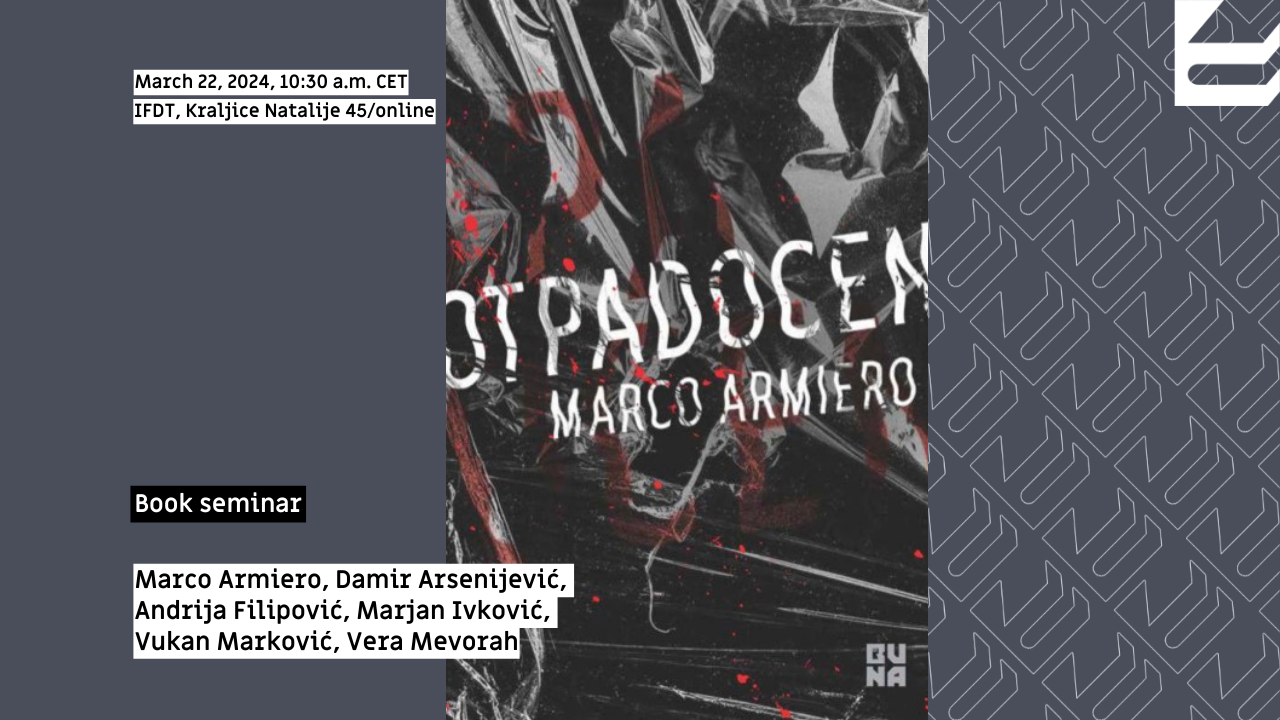
[BOOK SEMINAR] Marco Armiero – Wasteocene: Stories from the Global Dump (CriticLab & SolidCareLab)
Humans may live in the Anthropocene, but this does not affect all in the same way. How would the Anthropocene look if, instead of searching its traces in the geosphere, researchers would look for them in the organosphere, in the ecologies of humans in their entanglements with the environment? Looking at this embodied stratigraphy of power and toxicity, more than the Anthropocene, we will discover the Wasteocene.
“As the Wasteocene is not about the material stuff but the socio-ecological relationships making someone/something disposable, as a concept it also questions some basic corollaries of the mainstream Anthropocene narrative. It implies, for instance, that it is not CO2 emissions that have created the ecological crisis, but socio-ecological relationships that produce the emissions.” (Armiero 2021: 11)
The imposition of wasting relationships on subaltern human and more-than-human communities implies the construction of toxic ecologies made of contaminating substances and narratives. While official accounts have systematically erased any trace of those wasting relationships, another kind of narrative has been written in flesh, blood, and cells. Traveling between Naples (Italy) and Agbogbloshie (Ghana), science fiction and epidemic outbreaks, this book takes the readers into the bowels of the Wasteocene, but it also indicates the commoning practices which are dismantling it.
On the occasion of the translation of Marco Armiero’s book Wasteocene: Stories from the Global Dump (Cambridge University Press, 2021) by the Rosa-Luxemburg-Stiftung – office in Bosnia and Herzegovina in 2023, CritcLab IFDT and SolidCareLab IFDT are organizing a book seminar.
Marco Armiero is Icrea Research professor at the Institute for the History of Science, Autonomous University of Barcelona. Since 2019 he has been the president of the European Society for Environmental History. Although rooted in that field, he has developed a transdisciplinary research agenda blending environmental history with political ecology and environmental humanities. From 2013 and 2022 he was the director of the Environmental Humanities Laboratory in Stockholm making it a global player in that emerging field. He has worked on the nationalization of nature, migrations and environment, and environmental justice. With his research, he has contributed to bridging environmental humanities and political ecology.
Participants:
- Vera Mevorah, Institute for Philosophy and Social Theory, University of Belgrade (moderator)
- Marco Armiero, Institute for the History of Science, Autonomous University of Barcelona (author)
- Damir Arsenijević, University of Tuzla
- Andrija Filipović, Faculty of Media and Communications, Singidunum University, Belgrade
- Marjan Ivković, Institute for Philosophy and Social Theory, University of Belgrade
- Vukan Marković, Institute for Philosophy and Social Theory, University of Belgrade
The event will be in English and can be followed online via the Zoom link.
